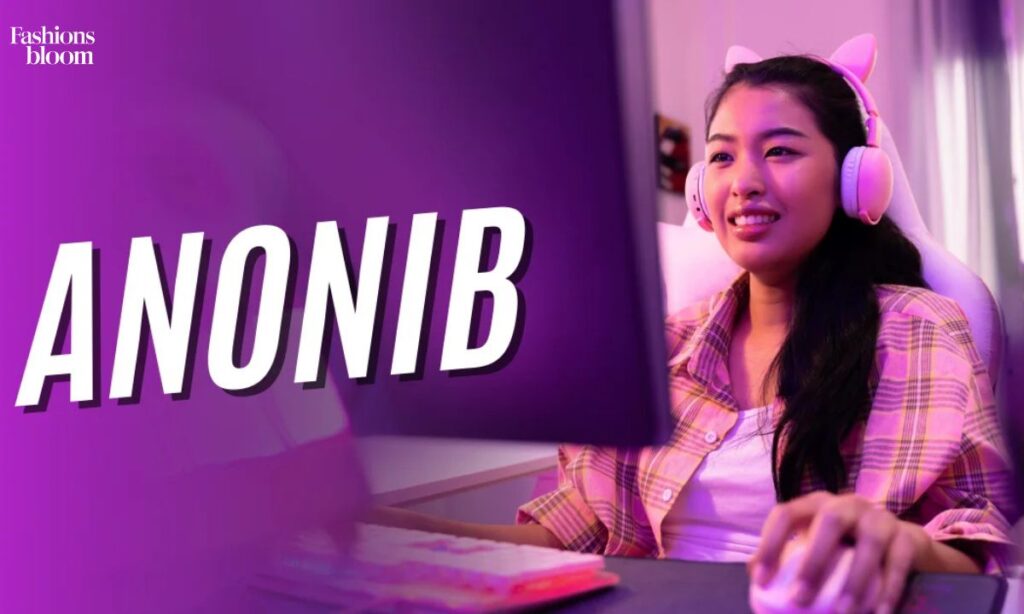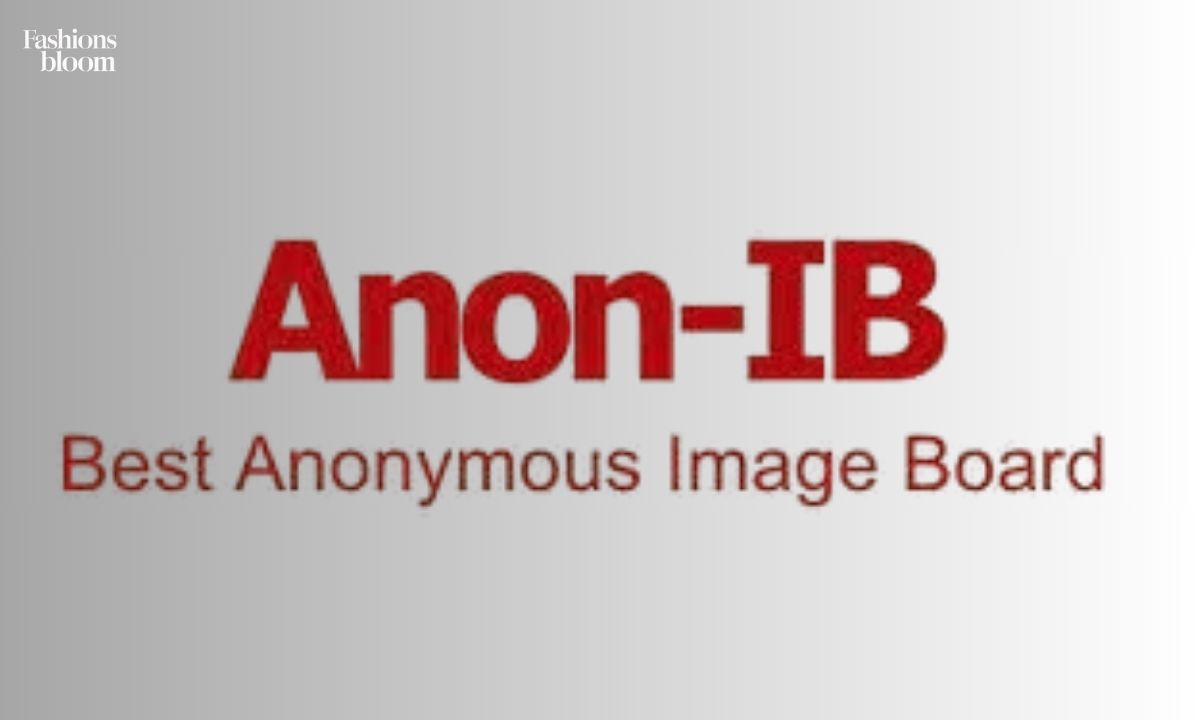In the vast expanse of the internet, anonymous image boards have gained both popularity and notoriety. One such platform, AnonIB (Anonymous Image Board), allows users to share images and engage in discussions while keeping their identities concealed.
Despite its appeal to individuals who value anonymity, the site has attracted significant controversy due to its role in the distribution of explicit and sometimes illegal content. In this guide, we’ll explore what AnonIB is, its history, the legal and ethical issues it faces, its impact on privacy, and more.
What is AnonIB?
AnonIB is an anonymous imageboard, a type of online forum where users can post images, comments, and links without registering or revealing any personal information. The site is organized into different boards, each dedicated to various topics, from general discussion to niche interests.
AnonIB’s main appeal lies in the ability to participate without exposing one’s identity, allowing for unfiltered discussions and content sharing.
The concept of anonymity has been central to AnonIB’s operation, fostering a space where people can express themselves freely without the fear of judgment or retribution. However, this anonymity has also made the platform susceptible to misuse.
While many users come to share harmless content, others exploit the platform for illegal activities, such as sharing explicit images without consent. This aspect has attracted widespread criticism and legal scrutiny.
History and Evolution of AnonIB

AnonIB’s origins are tied to the broader history of anonymous imageboards, which gained traction in the early 2000s. The first of these, 4chan, created in 2003, laid the foundation for a culture of anonymous posting, allowing users to interact and share content without needing to register.
AnonIB emerged later as part of this movement, carving out its own niche by focusing on more controversial content, particularly explicit material.
Over the years, AnonIB has faced several shutdowns due to legal pressure, usually related to the distribution of non-consensual explicit images. However, despite these setbacks, the platform has resurfaced multiple times under different domains, adapting to new technologies and maintaining its core focus on anonymity.
It has attracted a dedicated user base, though it has also garnered significant criticism from both the public and law enforcement due to its association with illegal and unethical content.
AnonIB Controversies and Legal Issues
The most significant controversy surrounding AnonIB involves the sharing of non-consensual explicit images, often referred to as revenge porn.
In these cases, individuals’ private images are posted without their permission, leading to severe emotional and reputational harm. Victims of such activities often experience harassment, anxiety, and damage to their personal lives.
Due to these issues, AnonIB has been the target of numerous legal actions. Agencies like the FBI have investigated the platform in an attempt to hold those responsible accountable.
Tracking down the anonymous individuals behind these actions is a complex challenge, given the site’s lack of registration and use of anonymizing tools like VPNs and Tor.
The legal implications are vast, as the distribution of non-consensual explicit content can lead to severe penalties under laws like the Revenge Porn Law in the U.S., which criminalizes the sharing of intimate images without consent. The challenge remains for authorities to police such sites effectively without infringing on free speech and privacy.
AnonIB and Digital Anonymity
The concept of digital anonymity is a double-edged sword. On one hand, it offers individuals the freedom to express themselves without fear of judgment, reprisal, or censorship.
This is particularly valuable in sensitive contexts, such as discussing taboo topics or expressing controversial views without personal consequences. However, this same anonymity can also lead to harmful and illegal behaviors.
For platforms like AnonIB, anonymity often facilitates the sharing of harmful content, including explicit images, hate speech, and cyberbullying. While the lack of accountability allows for free expression, it also creates an environment ripe for abuse.
The ethical dilemma here is whether platforms like AnonIB should be held accountable for the content users share or if the responsibility falls solely on the individuals who post the material.
Read This Blog: Dallas Mavericks vs. LA Clippers: A Thrilling Showdown – Player Stats and Key Takeaways
Alternatives to AnonIB
While AnonIB is one of the more well-known anonymous imageboards, it is far from the only one. Several alternatives offer similar features, each with its own set of challenges and controversies.
- 4chan: One of the original anonymous imageboards, 4chan allows users to post content without registering. While it offers an array of boards for different interests, it has also faced criticism for hosting explicit and harmful content, including illegal activities.
- 8kun (formerly 8chan): Similar to AnonIB, 8kun has faced significant controversies over its role in hosting extremist content and illegal material. Despite its ban from major platforms, it continues to operate as an alternative for those seeking an anonymous forum.
- Reddit: While not fully anonymous, Reddit offers subreddits that cater to niche communities, some of which may have more lenient content moderation. Reddit has a strict content policy, and it works hard to remove illegal material, including non-consensual explicit content.
For those seeking safer alternatives, moderated platforms with stricter content policies, like Facebook and Twitter, may offer more controlled environments.
These platforms, while not anonymous, provide tools to report and block harmful content, reducing the risk of encountering explicit material.
The Role of Law Enforcement and Cybersecurity
Law enforcement agencies face considerable challenges in policing anonymous platforms like AnonIB. The anonymity that these sites offer makes it difficult to track down perpetrators of illegal activities.
Agencies like the FBI have used advanced cybersecurity tools and collaboration with internet service providers to trace the origin of malicious posts.
While many platforms try to remain unregulated, international cooperation and stricter laws are emerging as critical tools for addressing the illegal content shared on anonymous boards.
This includes laws aimed at prosecuting individuals who share non-consensual explicit material, as well as efforts to pressure service providers to remove hosting and support for such sites.
The issue of cybersecurity in such platforms is a dual challenge: protecting the privacy of legitimate users while also preventing misuse by malicious actors. It’s a delicate balance that requires ongoing attention from both tech companies and legal authorities.
AnonIB Impact on Online Privacy and Freedom
The tension between online privacy and the need for regulation is at the heart of the debate over platforms like AnonIB. On one hand, digital anonymity is seen as a fundamental human right, particularly in cases where users are under threat for their views or activities.
On the other hand, when anonymity facilitates harmful behavior, such as the sharing of non-consensual images or hate speech, the question arises as to how much regulation is necessary to protect individuals’ safety and dignity.
Advocacy groups like the Electronic Frontier Foundation (EFF) argue that online privacy is a cornerstone of free expression. However, they also acknowledge the need for oversight to protect individuals from harassment and exploitation.
As the digital landscape evolves, the challenge will be finding a balance that allows for both privacy and the protection of vulnerable individuals. Stricter regulations may be necessary, but they must not stifle legitimate free speech or lead to widespread censorship.
Content Moderation and Platform Responsibility
Anonymity complicates content moderation, as users can easily bypass identification and act without accountability. However, effective moderation is critical for preventing harmful content from spreading.
The responsibility of platform operators to prevent the sharing of non-consensual images and other illegal content is clear. Platforms like AnonIB could implement systems for detecting explicit material through automated filters, alongside user reporting mechanisms to flag inappropriate posts.
Stronger content moderation policies would also require better cooperation with cybersecurity firms and law enforcement to track and remove illicit content before it spreads.
In addition, hosting providers like Cloudflare and Google have a role to play in preventing the use of their services to facilitate illegal activities. By enforcing stricter content policies and offering transparency in their moderation efforts, these companies can contribute to a safer online environment.
Case Studies and Real-World Examples
Several high-profile cases have shown the damaging effects of platforms like AnonIB. One example is the case of revenge porn where explicit images were shared without the consent of the victims, leading to severe emotional trauma.
In one instance, the victim of non-consensual image sharing had to endure public humiliation, with some perpetrators even threatening further harm.
These cases highlight the importance of effective laws and regulations to prevent such violations. Legal action against perpetrators and platforms that host illegal content is critical to providing justice for victims and deterring future abuses.
Frequently Asked Questions
What is the purpose of AnonIB?
AnonIB provides a platform for users to share images and discuss topics anonymously.
Why is AnonIB controversial?
AnonIB is controversial due to its use for distributing non-consensual explicit content, which causes emotional distress to victims.
Is AnonIB legal?
While AnonIB itself is not necessarily illegal, it has faced scrutiny due to its hosting of illegal content, particularly explicit material shared without consent.
What are the alternatives to AnonIB?
Alternatives to AnonIB include platforms like 4chan, 8kun, and moderated platforms such as Reddit and Twitter, which offer stricter content moderation policies.
How can law enforcement handle anonymous sites like AnonIB?
Law enforcement can investigate anonymous sites through cyber forensic methods, cooperation with tech companies, and tracking IP addresses, though this can be difficult due to the use of encryption and anonymity tools.
Conclusion
In conclusion, AnonIB and similar anonymous imageboards present a complex challenge in the digital age. While they offer anonymity, which can be crucial for free expression, they also provide a platform for illegal and harmful activities, such as the distribution of non-consensual explicit content.
Striking a balance between privacy and accountability will be crucial as we move forward in addressing these challenges.
The future of anonymous imageboards will likely involve stricter content moderation, increased regulation, and greater cooperation between tech companies and law enforcement.
By addressing these issues collaboratively, we can help create a safer online environment that still protects individuals’ right to privacy and free speech.

I’m Brook, a passionate blogger with 8 years of experience. I love writing about tech, fashion, business, and health. My goal is to share useful information and insights with you. Explore my website to discover exciting content on various topics!








